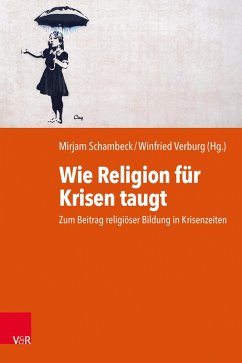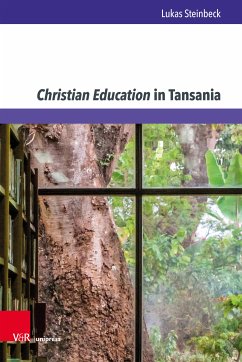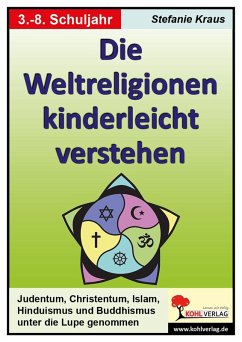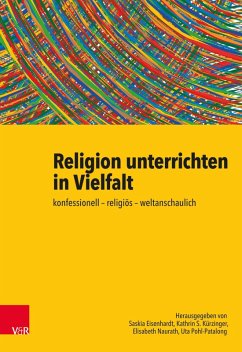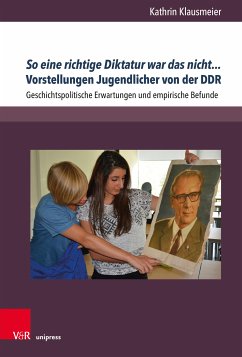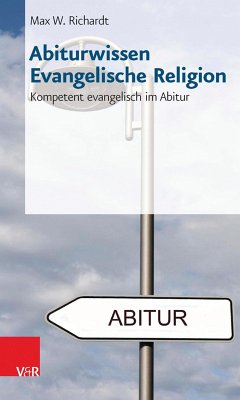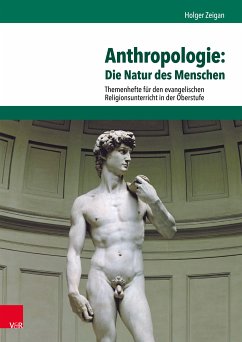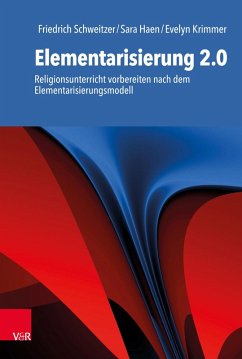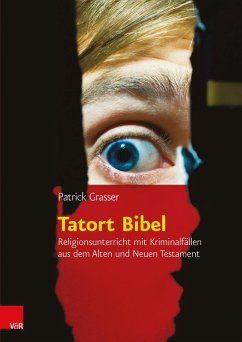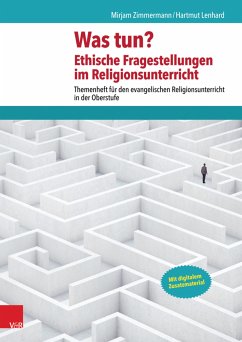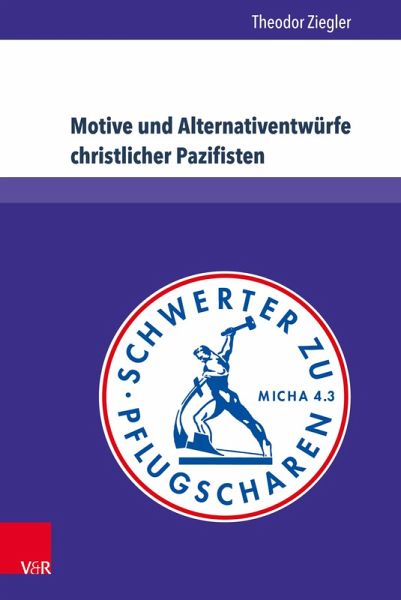
Motive und Alternativentwürfe christlicher Pazifisten (eBook, PDF)
Die vorrangige Option der Gewaltfreiheit im Religionsunterricht der Kursstufe

PAYBACK Punkte
0 °P sammeln!
Seit der konstantinischen Wende im vierten Jahrhundert bis in die Gegenwart wurden Menschen, die militärische Gewalt ablehnten, zum Schweigen gebracht. Erst nach dem Zweiten Weltkrieg gab es in Deutschland ein gewisses Verständnis für die Kriegsdienstverweigerer. Mit der Formel der »vorrangigen Option der Gewaltfreiheit« versuchte die EKD der biblischen Orientierung gerecht zu werden, ohne sich jedoch explizit von der nachrangigen militärischen Option zu distanzieren. In einer Zeit, in der »Verantwortung übernehmen« einen Euphemismus für völkerrechtswidrige Militäraktionen darstell...
Seit der konstantinischen Wende im vierten Jahrhundert bis in die Gegenwart wurden Menschen, die militärische Gewalt ablehnten, zum Schweigen gebracht. Erst nach dem Zweiten Weltkrieg gab es in Deutschland ein gewisses Verständnis für die Kriegsdienstverweigerer. Mit der Formel der »vorrangigen Option der Gewaltfreiheit« versuchte die EKD der biblischen Orientierung gerecht zu werden, ohne sich jedoch explizit von der nachrangigen militärischen Option zu distanzieren. In einer Zeit, in der »Verantwortung übernehmen« einen Euphemismus für völkerrechtswidrige Militäraktionen darstellt, können die an Evangelium, Menschenrechten, Lebenserfahrung und Vernunft orientierten Motive und Alternativentwürfe christlicher Pazifisten einen Ausweg aus dem Dilemma aufzeigen. Für diesen Band führte der Autor Interviews mit Harald Bretschneider, Eugen Drewermann, Theodor Ebert, Fernando Enns, Ute Finckh-Krämer, Albert Fuchs, Hans Häselbarth, Ullrich Hahn, Ullrich Lochmann, Stefan Maaß, Paul Oestreicher, Ulrich Parzany, Paul Russmann, Horst Scheffler und Markus Weingardt. Since the Constantine shift in the fourth century, people who opposed the use of military force have been kept silent. It was not until after the Second World War that some understanding for conscientious objectors in Germany appeared. Using the "priority option of nonviolence" formula, the EKD sought to justify their biblical orientation without explicitly distancing itself from subsequent military options. At a time when "taking responsibility" is a euphemism for military actions that violate international law and those actions are further officially justified as "retaliatory action", the motives and alternative plan of Christian pacifists based on the gospel, human rights, life experiences and good common sense can provide a way out of the dilemma. For this volume, the author has interviewed Harald Bretschneider, Eugen Drewermann, Theodor Ebert, Fernando Enns, Ute Finckh-Krämer, Albert Fuchs, Hans Häselbarth, Ullrich Hahn, Ullrich Lochmann, Stefan Maaß, Paul Oestreicher, Ulrich Parzany, Paul Russmann, Horst Scheffler, Markus Weingardt.
Dieser Download kann aus rechtlichen Gründen nur mit Rechnungsadresse in A, B, BG, CY, CZ, D, DK, EW, E, FIN, F, GR, H, IRL, I, LT, L, LR, M, NL, PL, P, R, S, SLO, SK ausgeliefert werden.




